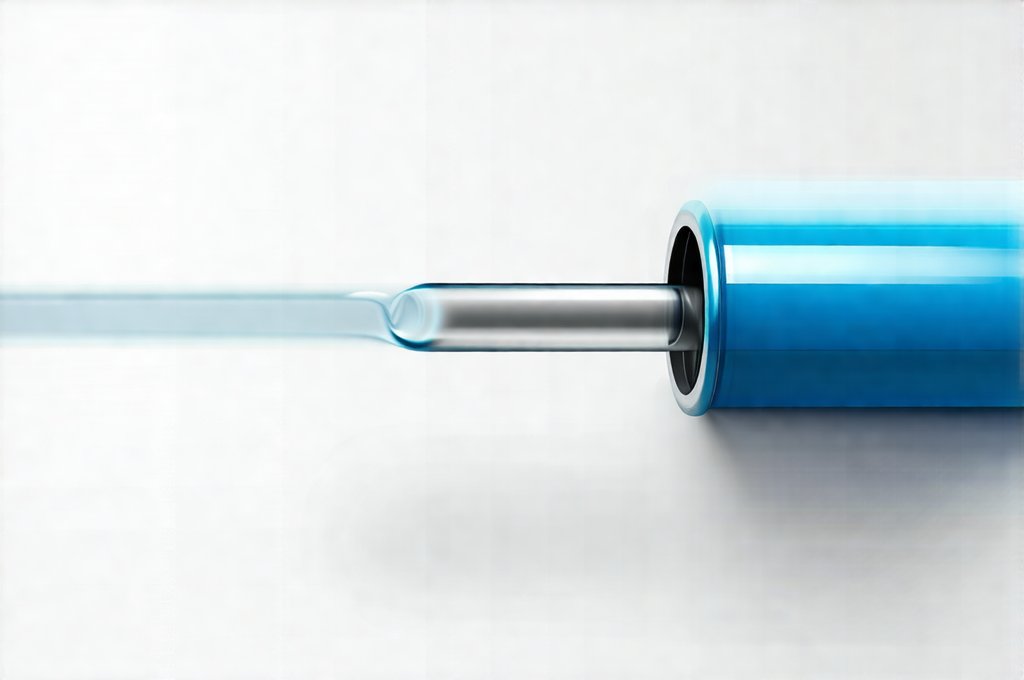Gas is a completely normal part of digestion. Almost everyone experiences it, and for most people, it’s simply an embarrassing but harmless consequence of breaking down food. However, when gas becomes excessive, incredibly painful, or accompanied by other concerning symptoms, it can be more than just a dietary inconvenience – it might signal an underlying health issue that requires attention. Understanding the difference between everyday flatulence and potentially problematic gas is crucial for proactive health management. This article will explore what constitutes “normal” gas, when to worry about changes in your digestive patterns, and what signs could indicate a need to consult a healthcare professional. It’s vital to remember that self-diagnosing can be dangerous; this information is intended for general knowledge and should not replace the advice of a qualified medical practitioner.
The human digestive system is a complex process involving numerous bacteria working to break down food. This breakdown naturally produces gas as a byproduct. Factors like diet, eating habits (eating too quickly or swallowing air), and individual gut microbiome composition all play a role in how much gas someone experiences. Certain foods are notorious for causing more gas than others – beans, broccoli, onions, dairy products (for those lactose intolerant), and carbonated beverages are common culprits. Normal gas is usually relieved through burping or flatulence and doesn’t significantly disrupt daily life. It’s typically not associated with severe pain, changes in bowel habits, or other worrisome symptoms. Recognizing your normal is the first step; what’s typical for one person might be excessive for another. If you are concerned about your reflux, it may be helpful to see if acidic or non-acidic symptoms present themselves.
Understanding Normal vs. Problematic Gas
The key difference between harmless gas and potentially concerning gas lies in its characteristics and accompanying symptoms. While occasional bloating or passing gas after a meal isn’t usually cause for alarm, persistent or severe gas accompanied by other digestive issues should prompt further investigation. For instance, if you suddenly find yourself experiencing significantly more gas than usual, or if the pain associated with it is debilitating, it’s time to pay attention. Look beyond just the presence of gas itself; consider how it feels and what else is happening in your body. Is the gas accompanied by abdominal pain that doesn’t subside? Are you experiencing changes in bowel movements – diarrhea, constipation, or a change in stool consistency? These are indicators that something more than simple dietary gas might be at play. Understanding what your stomach is telling you can also be helpful.
- Chronic bloating: Feeling constantly full and uncomfortable, even after eating small amounts of food.
- Severe abdominal pain: Pain that is intense, persistent, or interferes with daily activities.
- Changes in bowel habits: Diarrhea, constipation, or alternating between the two.
- Nausea and vomiting: Experiencing feelings of sickness and/or throwing up.
- Unintentional weight loss: Losing weight without actively trying to do so.
If you notice any combination of these symptoms alongside excessive gas, it’s important to consult a healthcare professional to rule out underlying medical conditions. Don’t hesitate to seek medical attention if your gut tells you something isn’t right – trusting your instincts is often the best course of action when it comes to your health. It is also worth noting that certain medications can contribute to gas or mask underlying issues, so reviewing any medication list with a doctor is a good idea. If you suspect this might be more than just gas, consider whether acid reflux could be the cause.
Potential Underlying Conditions Related to Excessive Gas
A variety of medical conditions can manifest as excessive gas and related digestive symptoms. Irritable Bowel Syndrome (IBS) is one common possibility. IBS is a chronic disorder that affects the large intestine, causing abdominal pain, bloating, gas, diarrhea, and constipation. The exact cause of IBS isn’t fully understood but it’s thought to involve a combination of factors including gut microbiome imbalances, nerve sensitivities, and muscle contractions in the intestines. Another potential culprit is Small Intestinal Bacterial Overgrowth (SIBO), where an excessive amount of bacteria grows in the small intestine, leading to fermentation of undigested food and production of gas. Lactose intolerance or other food allergies/intolerances can also be responsible, as the inability to properly digest certain foods leads to increased gas production.
Beyond these common conditions, more serious issues like celiac disease (an autoimmune reaction to gluten) and inflammatory bowel diseases (IBD), such as Crohn’s disease and ulcerative colitis, can sometimes present with excessive gas alongside other more prominent symptoms. These conditions typically involve inflammation of the digestive tract and require a thorough medical evaluation for diagnosis and treatment. It’s crucial to remember that these are just possibilities; accurate diagnosis requires proper testing and assessment by a healthcare professional. Never attempt to self-diagnose or treat based on online information, as this can delay appropriate care and potentially worsen your condition. Knowing if your gut is healing can also help you assess the situation.
Recognizing the Red Flags: When To See A Doctor
There are specific warning signs that should prompt immediate medical attention when dealing with excessive gas. Persistent abdominal pain that doesn’t improve with over-the-counter remedies is a key indicator. If you experience severe, cramping pain that comes and goes or is constant and debilitating, it’s time to seek professional help. Similarly, any changes in bowel habits – diarrhea lasting more than a few days, constipation that persists despite dietary changes, or blood in your stool – should be evaluated by a doctor.
- Blood in your stool (either visible or detected during testing).
- Fever accompanied by abdominal pain and gas.
- Severe nausea and vomiting preventing you from keeping down fluids.
- Inability to pass gas despite feeling bloated and uncomfortable.
- Unexplained weight loss coupled with digestive issues.
These symptoms could indicate a more serious underlying condition requiring prompt diagnosis and treatment. Don’t hesitate to contact your healthcare provider or visit an emergency room if you experience any of these red flags. Remember, early detection is often crucial for managing health conditions effectively. Procrastinating can lead to complications and make treatment more challenging down the line. If you are experiencing severe symptoms, it’s important to determine if it’s acid reflux or something else entirely.
Diagnostic Tests Your Doctor Might Use
When you consult a doctor about excessive gas, they will likely start with a thorough medical history and physical examination. They’ll ask detailed questions about your symptoms, diet, medications, and family history. Based on this initial assessment, they may recommend certain diagnostic tests to identify the underlying cause of your gas. Common tests include:
- Stool Tests: These can help identify infections, parasites, or malabsorption issues.
- Lactose Intolerance Test: This test determines if you have difficulty digesting lactose, a sugar found in dairy products.
- Celiac Disease Screening: Blood tests and potentially an intestinal biopsy can diagnose celiac disease.
- Breath Tests: Used to detect SIBO or lactose intolerance by measuring the gases produced after consuming specific substances.
- Colonoscopy/Endoscopy: These procedures involve using a flexible tube with a camera to visualize the colon or upper digestive tract, allowing for detection of inflammation, ulcers, or other abnormalities.
The doctor will choose the most appropriate tests based on your individual symptoms and medical history. The results of these tests will help them determine the cause of your gas and develop an effective treatment plan. Be prepared to discuss your concerns openly and honestly with your healthcare provider to ensure accurate diagnosis and personalized care. If you suspect a food sensitivity, it’s worth investigating a hidden food intolerance.
Lifestyle & Dietary Adjustments To Manage Gas
While a doctor’s assessment is paramount, several lifestyle and dietary adjustments can often help manage excessive gas. Keeping a food diary to identify trigger foods is an excellent starting point. Pay attention to what you eat and when your symptoms occur – this can help pinpoint specific foods that exacerbate your gas. Consider eliminating or reducing consumption of common gas-producing foods like beans, broccoli, onions, carbonated beverages, and dairy products (if lactose intolerant).
- Eat slowly and chew your food thoroughly: This helps with digestion and reduces the amount of air you swallow.
- Stay hydrated: Drinking plenty of water aids in digestion and can prevent constipation.
- Exercise regularly: Physical activity promotes healthy bowel movements and reduces bloating.
- Manage stress: Stress can exacerbate digestive issues, so incorporate relaxation techniques like yoga or meditation into your routine.
Over-the-counter remedies like simethicone (Gas-X) or activated charcoal may provide temporary relief from gas symptoms, but they don’t address the underlying cause. Remember that these adjustments are often most effective when combined with a proper medical diagnosis and treatment plan recommended by your healthcare provider. Don’t attempt to self-treat persistent or severe gas without professional guidance. Understanding what your stomach is trying to tell you can be a helpful first step.


















